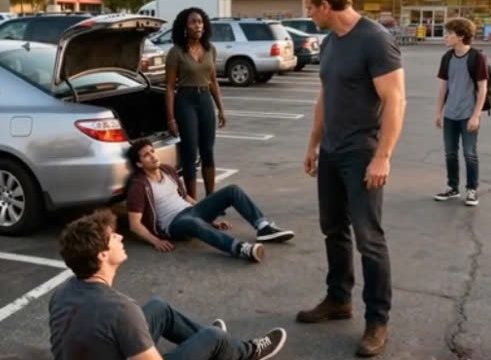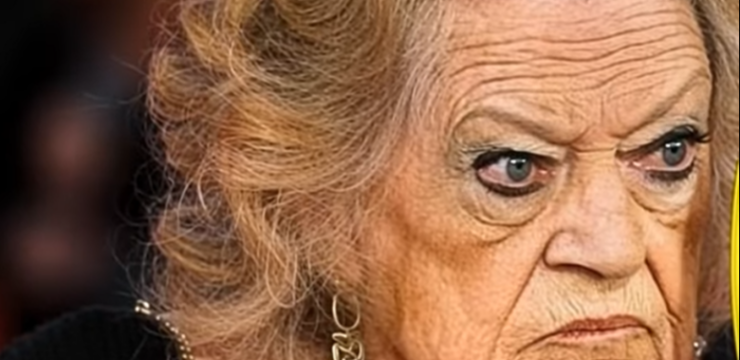Every Tuesday since 2016, the same man appeared at our house with his old push mower, a figure so consistent that he became part of the rhythm of our lives, though he never knocked, never asked permission, and never spoke a word. He didn’t wear headphones, never waved hello, never paused for small talk. He simply mowed the lawn with quiet precision, moving carefully around the rose bush as though it were sacred, skipping the same back corner without fail, and stopping after exactly forty-two minutes.

My family never hired him, yet he came like clockwork, transforming our front yard into his personal ritual. At first, we didn’t think much of it. My mother speculated that maybe he worked for the county, while my father shrugged, saying, “Let him do it. He’s not hurting anyone.” Once we offered him water, and though he nodded politely, he never took a sip. And so the years passed, with the sound of his mower marking Tuesday mornings like a strange but comforting tradition, until everything changed one foggy day. That morning he arrived earlier than usual, just past six, the air still heavy with mist. He wore long sleeves, and his dog, who usually trotted alongside him, was gone.
After finishing his usual path, instead of leaving, he walked up our porch steps and placed something on the welcome mat. It was a black-and-white photograph, old but clear. The picture showed our house, but not as it looked today. The windows and porch were different, and in the yard stood a boy holding a broken rake. On the back, written in ink, were four haunting words: “Tell her I tried.” Without a sound, he crossed the street and pushed open the gate of a house we had always believed was abandoned, a gate that had not moved in years. I stood frozen at the window, toast in hand, unable to believe what I was seeing. When my mother came downstairs, I handed her the photo.
The moment she looked at it, her face drained of color, and she collapsed into a chair whispering, “It’s him.” When I asked who, she said, “Your uncle. My brother.” Until then, I had always believed she was an only child. She explained that she once had a brother who had disappeared at seventeen after a terrible fight at home, and she had never told me because she did not know what had happened to him. Now she was certain, pointing out that the way he walked and his habit of avoiding the back corner made sense—it was where their old shed once stood, the place he used to hide when their father’s temper flared. She decided she needed to see him. Crossing the street, she pushed open the creaking gate and knocked. The door opened before she spoke, and there he was—older, thinner, worn down, but undeniably her brother.
They stared at each other in silence until he stepped aside and let her in. Hours later, she returned with tears in her eyes. He had been homeless for years, caught in a downward spiral, too ashamed to come back. He had lived in the condemned house across the street, and mowing our lawn was his way of staying close without facing the family he felt he had failed. Then she told us the hardest truth: he was dying of liver failure, with little time left. He asked if he could stay, and my parents agreed. We cleared out the guest room, and he moved in with only a small duffel bag. At first, the silence was heavy, but slowly it softened. He repaired the broken fence, rewired the porch light, replanted my mother’s herb garden. Our house began to feel warmer in ways we hadn’t realized it was missing.
One evening, my mother pulled out a box of old photos, and for the first time in decades, they laughed together, remembering their childhood adventures, the treehouse that collapsed the day it was built, and sneaking into the drive-in. For her, it was like recovering a piece of her past. For him, it was a fragile second chance. But his health declined quickly. His eyes turned yellow, his body weaker. The hospital confirmed what he already knew: cirrhosis, advanced and irreversible. We brought him home, set up a bed by the window so he could watch squirrels.
Neighbors stopped by, some remembering him from decades ago. They shared stories of how he had quietly helped them even during his hidden years, fixing mailboxes, clearing drains, shoveling snow—always silently, always without recognition. One night, he passed peacefully, surrounded by family who once thought he was gone forever. The following Tuesday, I woke to the familiar hum of a mower. Heart racing, I rushed outside. The lawn was freshly cut—the rose bush circled, the back corner untouched. But he was gone. Instead, the mower rested by the porch with a note taped to it: “He taught me how.” It was signed by Marcus, a neighborhood teen my uncle had quietly mentored.
We told Marcus he could keep mowing, and he has—every Tuesday, at seven sharp, the sound carrying on the legacy. What began as a mystery became a story of forgiveness, redemption, and legacy. My uncle, once lost, found his way back through silent acts of service. His mowing was more than yard work; it was an apology, a prayer, a promise. Sometimes people cannot find the words to say “I’m sorry.” Sometimes healing comes not from speeches but from quiet acts of kindness. For us, forgiveness looked like a freshly mowed lawn. For him, redemption was found in every blade of grass trimmed and every Tuesday he showed up. His legacy doesn’t need to be grand—it lives on in the steady hum of a mower cutting through the early morning fog.





